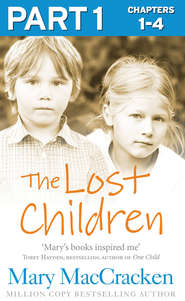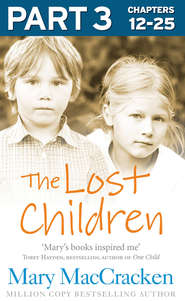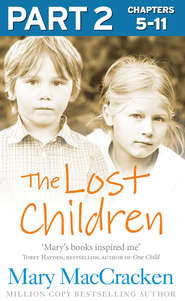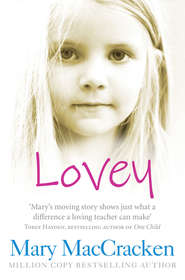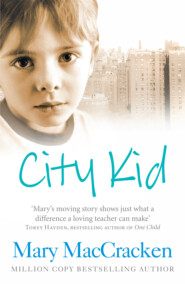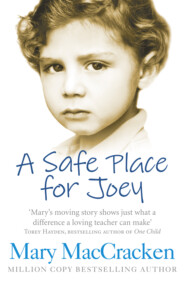По всем вопросам обращайтесь на: info@litportal.ru
(©) 2003-2024.
✖
The Lost Children
Настройки чтения
Размер шрифта
Высота строк
Поля
I could not tell whether it was bitterness I heard in Helga’s voice or only disappointment.
On Saturday, Helga picked me up in her ancient coupe and drove me over to her new school; she had met its young director many years before. She led me to the central resource room filled with shelves lined with paper, paints, clay, doll families, puzzles, books, workbooks, textbooks, pencils, blocks, on and on – and outside in the shed beside the building, bicycles, scooters – contrasting to our own meager supplies.
Helga spread her hands. “We are rich!” she said. “Come, come.” Down a long hall, then she threw open a door marked Girls: there in white-tiled glory were five sinks and seven toilets, and Helga flushed each one with satisfaction.
On Memorial Day weekend Helga went bicycling through northern New England with her husband. She was anxious to be gone, and I knew those last weeks of school were very difficult for her. She might say she didn’t mind leaving, but I saw her eyes fill with tears more than once, and her cursing had increased. She decided to add a day and a half to her weekend and asked if I would take charge of her class during that time.
I was pleased to be asked, of course – I was proud that Helga felt that I could teach alone. I knew she cared too much for her children to leave them with anyone she thought incompetent. It was not until much later that I realized that Helga was now consciously teaching me, preparing me, making me grow, just as she did the children. Helga had never taken an education or psychology course, but she was a born teacher, and she knew instinctively when it was time for me to take on more responsibility.
Now, too, I read, researched, balancing what I was reading against Helga’s teaching. Helga had not thought much of education courses, and yet I was greedy for every morsel of information I could find on childhood schizophrenia, autism, the emotionally disturbed. I soon exhausted our local libraries and moved on to the libraries of New York, and bought my own books. Still, amazingly little had been written about these illnesses in children, and many of the authorities disagreed with one another on the cause and range, on diagnosis and prognosis. I wished Helga would write her own book. The others were confusing, contradictory – and yet valuable. So I kept on reading – textbooks, case histories, personal experiences – agreeing, disagreeing, gradually evolving my own beliefs, though these, too, I knew would shift and change as more research was done and my own experience grew.
The term “seriously emotionally disturbed child” covers a wide range, including both the withdrawn, autistic child and the hyperactive, violently acting-out child. Many of the children in our school were diagnosed as being autistic, but the Director preferred the broader term “seriously emotionally disturbed.”
Although there were differing views, gradually a pattern appeared as I read. Various authorities differed on cause and treatment, but most writers and educators seemed to agree on the prime characteristics of the emotionally disturbed child.
First of all, he has a lack of awareness of his own identity. His concept of his own body image is very small. He seldom speaks properly; sometimes he may not speak at all. Certainly this was true at our school; over two thirds of the children had severe language problems.
The seriously emotionally disturbed child resists change, often becomes preoccupied with a particular object, and is filled with excessive anxiety. His emotional relationships with family, peers, and teachers are severely impaired. He does not care; he is turned in upon himself. Although he may appear to be retarded because of these things, still he may often have flashes of brilliance in contrast to the even performance of the retarded child.
The books said this and I believed it: still, it was a conglomerate, whereas to me each child was unique, an individual.
The more I read, the more certain I became of one fact: the screening and certifying of teachers of emotionally disturbed children should not depend solely upon graduation and completion of required courses; the screening should be different for this field. The Helgas of this world must not be lost. The art of communication is just that – an art – and there must be a talent before the craftsmanship can be developed, or you will have only technicians, not gifted teachers. You can instill a hundred techniques in a teacher, have her memorize thousands of technical terms; but if she cannot make contact with the children they are useless.
We said good-bye on the last day of school, Helga and I. We stood on the paint-stained green linoleum of her classroom and I knew I would never see her just so again. I tried to memorize her – the short, thick, straight, graying hair; the horn-rimmed glasses slipping ever closer to the end of her nose as she bent her head nearer, closer, to get a better look; the strong legs above the sneakers. Not young or fashionable or beautiful – merely ageless and phenomenal, like the mountains I had seen in Canada. She had charted a new course, opened a new door, turned a new leaf; there were no right words, only clichés; but Helga had done it for me – and I loved her.
I had wanted to give her a present but I could not think of the right one, and so I went to her now and put my arms around her and out loud could only say, “Thank you, Helga.” But I hope my body language spoke to her.
She held me, too, and we stood like this. Then she moved back a little and took my chin and held it in her hand, smiled, and said, “You will be a good teacher, Mary. Yes. Just watch out for the shitty volunteers.”
Chapter 4 (#u810c750e-ba6b-5fb5-b910-f36c64c0d36d)
In the fall I went back to work at the school again, but it was very different. Not only had Helga left, but most of the staff left with her, having been lured to higher-paying positions. The Director remained, strong, resolute, and for the first time I could imagine her founding the school. She hired a new staff – new psychologists, teachers, psychiatrist, speech therapist.
Besides a new staff, there was also a new location. One of the board members had been instrumental in persuading a church in a nearby town to let the school use its building during the week. It was new and clean and pleasant. There were only two drawbacks: there was no kitchen – all the lunches had to be brought in – and nothing could be left in the classrooms over the weekends; they had to be cleared for Sunday school. Each Friday everything had to be taken down, rolled up, packed away, carried down a long hall to be stored in a back room; then early on Monday mornings the process was reversed.
I was assigned to work with Renée when I went back, and for the first time I learned what bad teaching was. She was young and pretty with teased blond hair; but instead of the happy, confident security I had come to take for granted as the school’s atmosphere, there was a tight, brittle tension in Renée’s room behind what she called “permissiveness.” I watched her narrow hands clench and her voice rise as she refilled the bathtub of water she kept in the center of the room; time and time again the children dumped it over with shrill laughter.
Her theory of permissiveness, she explained, was one that was used with great success in Canada. She felt that all emotional disturbance stemmed from the same source: the fact that the child had never been accepted by his parents. So before he could grow up, he must be allowed to be a baby and do the things he had wanted to do. Renée brought with her pink tin playhouse equipment – stove, refrigerator, sink. I was not quite sure how these fitted into her theory, but I know that my major contribution to her class that fall was the lugging of stove, refrigerator, sink, and bathtub back and forth on Fridays and Mondays.
I was not happy working in that room. All day long the children destroyed things. “They are getting the hate out of their systems,” Renée would say; but if they were, they did not seem any happier for it. They whined and cried and lay on the floor, cold and wet with bath water and urine.
Just before Christmas vacation I spoke to the Director, asking to be transferred to another room. I did not feel knowledgeable enough to be critical – it was possible that this was another way to teach, perhaps a valid way, but it was not for me. And by now my own self-knowledge had grown to the point where I did not wish to pretend. At least not here at school.
There was a great deal of snow that Christmas and our town was white and beautiful. The schools, of course, were closed for the holiday and the house was filled with the noises of my own two children and their friends.
Rick was the oldest, a senior in high school – tall, solidly built, good in both sports and his studies. He was one of those rare children who seemed to have been born happy, well adjusted in his own world, tolerant of others.
Elizabeth was four years younger, and whereas Rick was broad, thick through the shoulders, Elizabeth was slender with black hair, blue eyes; always late, always rushing, eager, stormy, both sensitive and critical – and the most tender and loving of us all. Her Christmas presents expressed her intimate knowledge of us, each gift specific and personal – exactly what each of us had wanted but had not had the time or money or courage to buy.
Larry left early each day for his office in the city, and so I ate a second, long, lazy breakfast with the kids, lingering over the pancakes, a luxury for which there was never time during school. I savored both my coffee and my children, knowing that after breakfast they would be gone into the city for a basketball game or a movie, or else skating at the club with their friends.
Thoughts of the school receded slightly from my mind until one morning just after New Year’s Day when the phone rang. It was the President of the Board of Trustees of the school saying that there was a vacancy on the Board and asking if I would be willing to fill it. I did not really want the position. I had served on too many boards already, gone to too many meetings, voted too many times; but this was the school, and the thought crossed my mind that perhaps this was as far as I would get there, my dreams of teaching too impossible. At least this way I could help build a new school, for our present quarters were only temporary. I watched a brown female cardinal in the pine tree just outside the window beside the telephone, and said, “Yes, I would be delighted to serve.”
I never did, though.
Before that same day ended, the Director of the school called. She said that Joyce, one of the new teachers, had been in a bad automobile accident; her car had skidded out of control and she had slammed head on into a highway divider. The car was a total loss, Joyce’s injuries serious but not permanent. Still, they would take time to heal; she would be in the hospital for six weeks. Could I take her class during that time at substitute’s salary?
The thing I had wanted so badly had happened; the job I had hoped for had been offered to me. So this is how it happens, I thought, no heavenly choir like in the movies, just quietly – a voice on the telephone. I, too, spoke quietly, using mundane language.
“I’ll speak to my family,” I said, “and call you this evening.”
Again I was surprised how small a thing it seemed to them. The kids said merely that they thought it was great. They loved to hear stories of the school and had been over to visit a couple of times.
When I told Larry that I had been asked to teach, he barely looked up from the television set. I lingered uncertainly, feeling in some way that I should warn him that this would change me. I was not sure how, but if the days as a volunteer with Helga had influenced me as much as they had, surely a full-time job would do more. But the commercial came on and he watched even that with concentration.
I called the Director then and asked more questions about Joyce’s class. Which children were in it? What were they like?
Billy, Chris, Louis, and Brad.
I knew none of them except Chris – the same Chris I had pushed on the swing when I was in Helga’s class. I had seen him only once or twice this year because his room was at the opposite end of the building from Renée’s. My head spun – so much to find out, but I couldn’t do it on the phone; no point in holding the Director. I thanked her and asked when it would be possible to come and talk with her.
“Oh, I’ll see you in the morning,” she replied.
“Tomorrow morning?” I asked.
“Yes. Vacation ends today, you know. The children will all be back tomorrow. You will start then.”
Chapter 5 (#u810c750e-ba6b-5fb5-b910-f36c64c0d36d)
I arrived early that first morning, thinking to talk with the Director, to find out about the children in Joyce’s class, to learn their backgrounds, their case histories, the results of their psychological and physical examinations. Even more important was to learn what their routine in school had been, what they were used to, how Joyce handled their problems; the daily lesson plan.
The Director was on the phone when I walked into her office, and I realized that this was my most familiar memory of her, both in this new building and in the old school. As I passed the office I would see her at her desk writing, talking – cigarette and pencil alternating in her right hand, the phone in her left.
She had white hair cut short, pushed back from a small, attractive face, bright brown eyes, and was somewhere between forty and sixty years old. She was cheerful and articulate in her speech; her movements were quick, strong, and spontaneous. She smiled and waved a good morning to me across the phone and cigarette and motioned to me to hang up my coat. I hung my heavy storm coat in the closet in her office, took off my fur-lined gloves and high brown boots, and – in memory of Helga – put on my sneakers. With my sneakers on, I was ready to teach.
The Director’s voice continued on the phone: “You’re right, it’s freezing cold this morning. If he’s coughing you’re wise to keep him home. Mmmmm. Yes. He did? Last night?”
Another ten minutes passed. I was beginning to get restless. In twenty minutes my class would arrive. I didn’t even know their last names.
Finally the phone call ended and the Director smiled at me. “I’m so glad you were able to come, Mary. How about a cup of coffee? First thing I do every morning when I get here is to plug in the pot.” From the shelf behind her desk she produced two cups and poured coffee for each of us.
“Could you tell me a little about the children in Joyce’s class?” I asked.
“Well, there are four boys … oh, excuse me, the phone. Oh, dear, I forgot to make a note that Jeff won’t be in; I must remember to tell Dan. Lots of calls on these cold mornings …”
And she was gone again. The phone rang four more times. There was a minor crisis when the woman who was scheduled to bring the casserole lunch for the children called to say that she herself was sick and couldn’t get out.
“Don’t worry. You take care of yourself now. Thanks for calling. Oh – yes. Yes. Certainly. No problem at all. Get well in a hurry now.” Cheeriness continued to flow out of the Director’s voice over the haze of cigarette smoke.






